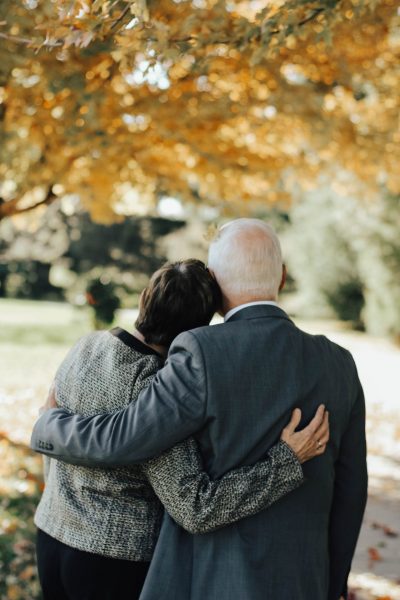Losing a parent — at any age — is a traumatic and challenging experience. This is an extremely underestimated reality. Think about it. Many people might postulate that it gets easier when the parent and child are older. But that only means that they’ve spent even more time together. They’ve created more memories. In some cases, they’ve gotten much closer.
The death of a loved one — especially a parent — evokes a massive amount of grief and mourning. If it happens when you’re older, it can be incredibly complicated. You’ve got a full life, perhaps a family and thriving career, and suddenly, you’re processing a profound loss.
Grief is a Tricky Ride
They say grief comes in stages but it’s not as linear as that. You might see it as unpredictable waves. As a result, here is just some of what you’ll feel:
- Disbelief, shock, confusion, emotional detachment, and numbness
- Anger
- Relief that they are no longer suffering and then guilt for feeling relief
- More guilt as to what you could have done to prevent the illness
- Unexplained physical pain
- Dark thoughts of despair, death, dying, and suicide
- Regret that you didn’t appreciate them enough when they were here
As daunting as these symptoms sound, they are relatively normal. If any of them become more than you can handle, reach out for help immediately (below).
If You Have Advance Warning
Sometimes, death arrives with an unexpected phone call. You’ve had no time to say goodbye, to say what you wished to say. Then again, if your parent dies after a prolonged illness, it can be just as traumatic in its own way. For those in that second group, a few suggestions:
- Express Your Feelings: Tell your parent how you feel. Thank them. Reassure them. Give both of you the gift having left no expression of love unspoken.
- Learn Their Preferences: As the illness reaches its inevitable outcome, be sure to find out what arrangements your parents want. This could have to do with a funeral, burial, memorial, etc.
- Take Photos and Video: You may think you don’t want to remember your parent in a weakened state, but you will never regret having video, audio, and photographs of them to soothe you when the grief rears its ugly head.
How to Start Healing After Your Parent Dies
1. Feel What You Need to Feel
Well-meaning people will urge you to “move on.” Ignore them. What’s important is for you to not repress your emotions. Set your own bereavement agenda and do not let others pressure you to do what does not feel right for you.
2. Self-Care
No matter how sad and busy you are, honor your own needs. Maintain a daily focus on self-care, e.g. healthy eating, physical activity, sleep, and stress management.
3. Expect Clichés
Folks will say things like “they wouldn’t want you to be sad.” They’ll speak about the importance of you “getting over it.” You’ll hear about how your parent is now “in a better place.” These well-intentioned comments are predictable. You are under no obligation to heed any of them.
4. Try Not to Self-Isolate
You may feel like no one gets it. No one understands what you are going through. You may be right but you need them anyway. Resist the urge to withdraw.
Accept Help and Comfort
You may need help with things like funeral arrangements, cooking meals, keeping your own kids on a schedule. Let your loved ones step up and offer such support. For yourself, consider talking with a counselor. Grief never ends. It just changes shape. This journey can be a lot less painful if you accept the guidance of an experienced professional.


